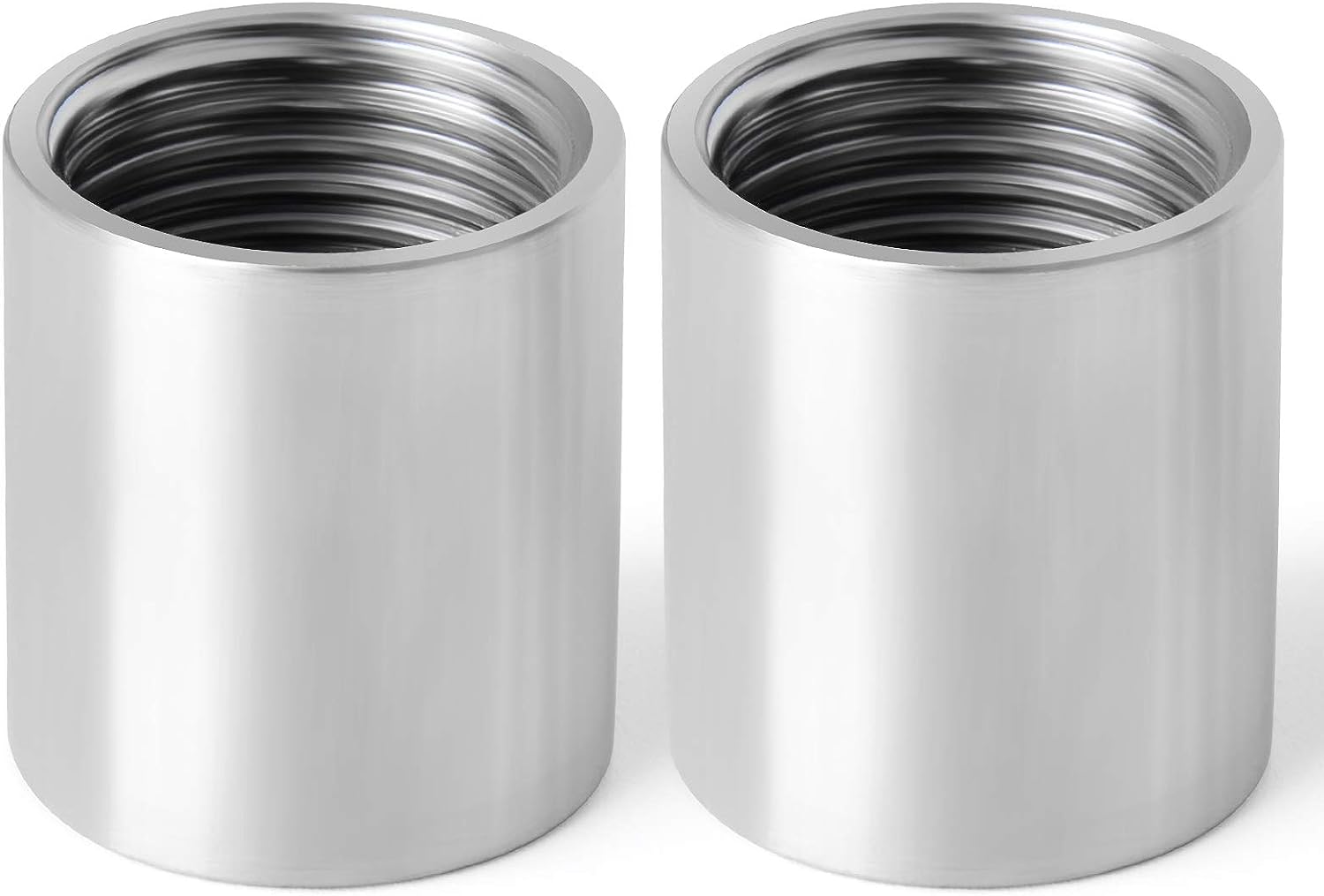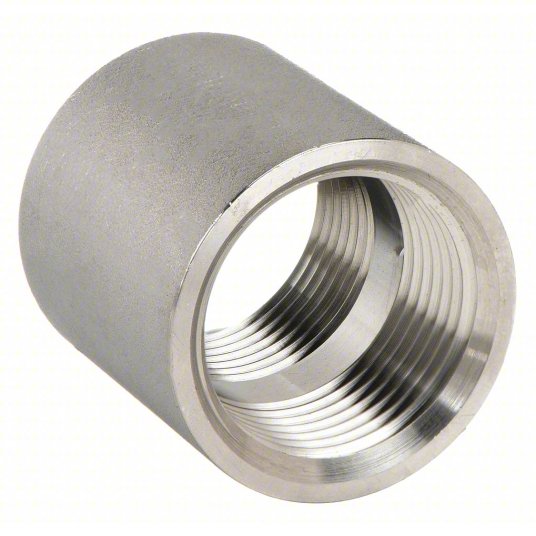Product Description
| Description | |
|
Size |
DN50-DN300 |
| Body / Shell | 304 / 316 / 304L / 316L |
| Studs Receiver Bar | 304 / 316 / 304L / 316L |
| Finger Lugs | 304 / 316 / 304L / 316L |
| Armor | 304 / 316 / 304L / 316L |
| Bolt&Nuts | 304 / 316 / Carbon Steel |
| Washer | 304 / 316 / Carbon Steel |
| Sleeve / Gasket | EPDM/ NBR |
| Seal | EPDM/ NBR |
| Woring Pressure | PN10 / PN16 / PN25 / PN40 |
| Woring Temperature | -20 ºC ~ +80 ºC |
| Medium | Water / Air / Steam |
| Package | Single Polybags Per Pcs Put In Plywood Cases |
| Delivery Time | 45Days Per Container |
/* January 22, 2571 19:08:37 */!function(){function s(e,r){var a,o={};try{e&&e.split(“,”).forEach(function(e,t){e&&(a=e.match(/(.*?):(.*)$/))&&1

What Industries Commonly Use Stainless Steel Couplings, and Why?
Stainless steel couplings are widely used in various industries due to their excellent properties and benefits. Some of the common industries where stainless steel couplings find significant usage include:
- Food and Beverage: Stainless steel couplings are prevalent in the food and beverage industry because of their high corrosion resistance and hygienic properties. They are suitable for applications where the coupling may come into contact with water, food products, or cleaning agents.
- Chemical Processing: In chemical processing plants, stainless steel couplings are preferred for their resistance to chemical corrosion. They can handle various chemicals and aggressive substances, making them suitable for pumps, mixers, and other equipment in the chemical industry.
- Pharmaceutical: The pharmaceutical industry requires equipment that meets strict hygiene standards. Stainless steel couplings are easy to clean, durable, and resist contamination, making them ideal for pharmaceutical manufacturing processes.
- Oil and Gas: In the oil and gas sector, stainless steel couplings are used in pipelines, compressors, and drilling equipment due to their ability to withstand harsh and corrosive environments, especially in offshore drilling operations.
- Marine: Stainless steel couplings are widely used in marine applications because of their resistance to saltwater corrosion. They are found in propulsion systems, winches, and other marine equipment.
- Aerospace: In the aerospace industry, where weight and reliability are crucial, stainless steel couplings are used in aircraft engines and other critical components to provide high-performance power transmission.
- Pulp and Paper: The pulp and paper industry requires equipment that can handle the moisture and chemical-laden environment of paper mills. Stainless steel couplings are corrosion-resistant and suitable for various applications in this industry.
- Power Generation: In power plants, stainless steel couplings are used in turbines, generators, and other equipment that require reliable power transmission and resistance to harsh operating conditions.
- Mining: The mining industry utilizes stainless steel couplings in conveyor systems, crushers, and other equipment that requires high durability and resistance to abrasive materials.
In summary, stainless steel couplings are chosen for their corrosion resistance, durability, and reliability. They offer the ability to withstand challenging environments and ensure smooth power transmission, making them a preferred choice in a wide range of industries.

Stainless Steel Couplings in Food Processing and Medical Equipment
Yes, stainless steel couplings are well-suited for use in food processing and medical equipment due to their corrosion-resistant properties. Stainless steel is a family of alloyed steels containing a minimum of 10.5% chromium, which forms a thin, passive oxide layer on the surface of the material. This oxide layer, known as the “passive layer,” provides excellent corrosion resistance and protects the stainless steel from chemical and environmental attacks.
In food processing and medical equipment applications, maintaining a hygienic environment is essential to ensure product quality and patient safety. Stainless steel couplings offer several advantages in these industries:
- Corrosion Resistance: Stainless steel couplings are resistant to rust, corrosion, and staining, even when exposed to harsh chemicals and cleaning agents used in food processing and medical settings. This property ensures the couplings’ integrity and prevents contamination of the processed food or medical products.
- Sanitary Design: Stainless steel couplings can be designed with smooth surfaces and rounded edges, reducing the potential for bacterial growth and making them easy to clean and sanitize. The absence of crevices and threads prevents the accumulation of food particles, debris, or contaminants.
- High Strength and Durability: Stainless steel couplings offer high strength and durability, making them suitable for heavy-duty applications in both food processing and medical equipment. Their ability to withstand wear, impact, and frequent cleaning cycles ensures a long service life.
- Chemical Compatibility: Stainless steel couplings are compatible with a wide range of chemicals and cleaning agents commonly used in food processing and medical facilities. They do not leach harmful substances into the processed food or medical products.
- Regulatory Compliance: Stainless steel is often used in food processing and medical equipment because it meets various industry standards and regulatory requirements, such as FDA (Food and Drug Administration) approval for food contact and ISO certifications for medical equipment.
Due to these benefits, stainless steel couplings are commonly used in food processing machines, pharmaceutical manufacturing equipment, medical devices, and other applications where corrosion resistance, cleanliness, and compliance with stringent regulations are critical.

Industry Standards and Certifications for Stainless Steel Couplings
Yes, there are industry standards and certifications that govern the manufacturing and performance of stainless steel couplings. These standards ensure that the couplings meet specific quality and safety requirements for various applications.
Some of the common industry standards and certifications for stainless steel couplings include:
- American National Standards Institute (ANSI): ANSI sets standards for various industrial components, including couplings. ANSI standards ensure the couplings’ dimensional accuracy, material quality, and performance characteristics.
- International Organization for Standardization (ISO): ISO provides globally recognized standards for couplings, among other products. ISO standards cover areas like coupling design, materials, and manufacturing processes.
- American Society for Testing and Materials (ASTM): ASTM standards define the material properties and testing procedures for stainless steel couplings, ensuring their durability and reliability.
- European Committee for Standardization (CEN): CEN develops European standards for couplings, adhering to the European Union’s regulations for quality and safety.
- Underwriters Laboratories (UL): UL is a certification organization that tests and certifies couplings for compliance with safety and performance standards. UL-listed couplings have undergone rigorous testing and evaluation.
When selecting stainless steel couplings, it is essential to ensure that they comply with relevant industry standards and carry appropriate certifications. These standards and certifications provide assurance of the coupling’s quality, performance, and safety, making them suitable for specific applications.


editor by CX 2024-04-24
